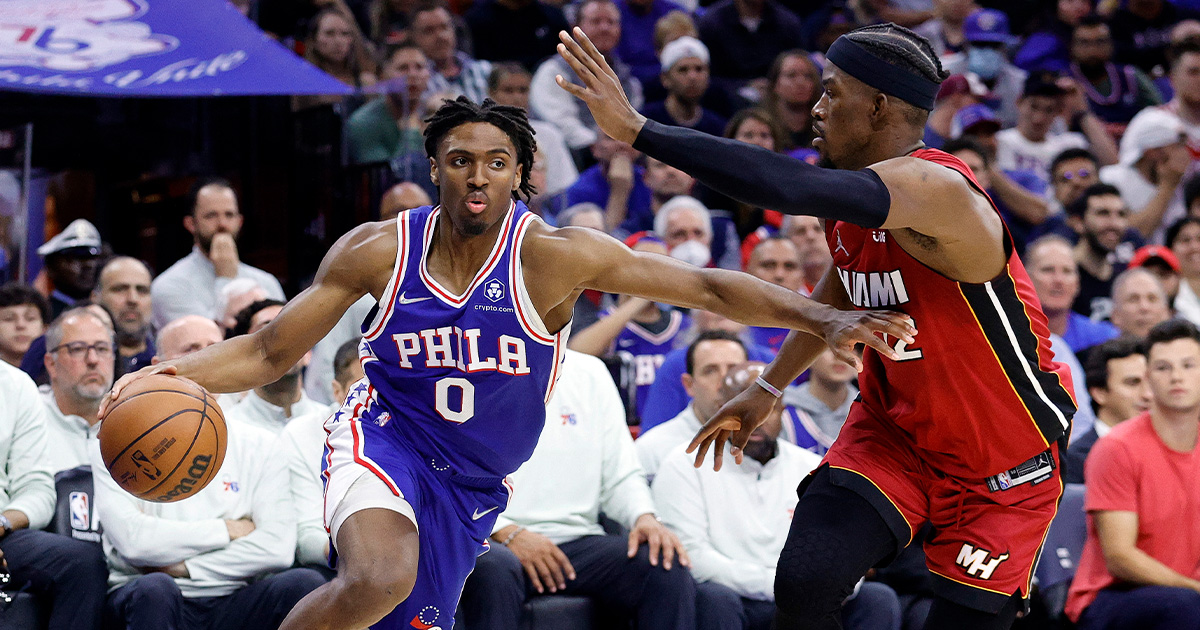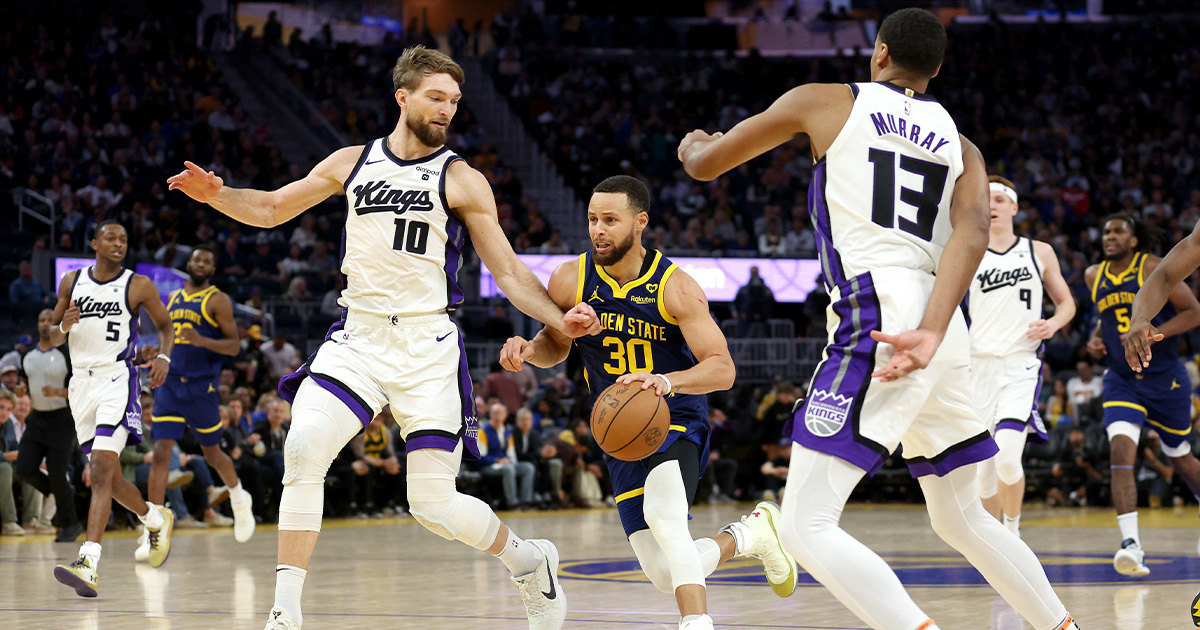I’m not going to lie. I was a big Stephon Marbury hater for a very long time.
I remember watching his meltdown online, where he was eating Vaseline on a live stream. At that moment, I thought it was just another case of an athlete that had gone over the edge. I felt that too much money had driven him over the edge, unable to think logically or properly anymore.
When he flamed out of the NBA, I thought he was just another selfish player that deservedly lost his place in a league that didn’t need any more prima donna athletes in its ranks.
I was intrigued though, when the stories started to come out of China that talked Marbury becoming a cultural icon that had won the adulation of basketball fans on the other side of the world.
The new Netflix documentary, ‘A Kid from Coney Island’, couldn’t have come at a better time. With the league still on pause, and the final episodes of ‘The Last Dance’ having been aired ages ago, I was happy to watch anything related to basketball.
I went into the documentary with no expectations and came out of the experience a bit more humbled. If anything, it reminded me that we judge athletes through a very public lens, and often don’t understand the things they have to deal with on a personal basis.
It also helped me realize that Stephon Marbury is one of the most misunderstood players to have played the league. Yes, he certainly made a lot of mistakes, but many of them came from his human fallibility. Like us, athletes aren’t perfect people, and watching his story from start to finish made me feel good that he was able to gain his redemption in China.
Here are my key takeaways from the documentary.
The Minnesota breakup
It was interesting to learn a bit more about some of the things that drove Marbury away from Minnesota, where he looked to be the second half of a superstar duo with Kevin Garnett. Their raw talent seemed like it would help turn the Timberwolves into a perennial contender, but it wasn’t meant to be.
First, there was the issue with money. Kevin Garnett’s monster $126 million contract changed the landscape of NBA salaries, and unfortunately for Marbury, new rules afterwards prevented him from getting a similar contract. For someone who believed in their talent, it probably felt like a slap to the face to only be able to get a little more than half of that. While I may not agree with that, because getting around $70 million would still be a life changing experience, I can see why it could have been an issue.
But what caught me about Marbury’s situation in Minnesota was realizing that he dealt with some deep loneliness while he was there.
“So you took this kid from his family, and placed him in an atmosphere that he had nobody,” shared his sister, Stephanie Marbury. “Kevin’s family had moved out there. I realized just how alone he was, and that’s not easy for a 20-year-old, to be transplanted from where everything he knows to something totally unfamiliar.”
“I used to go see Steph in Minnesota,” added rapper Fat Joe. “He was unhappy, man. He was miserable out there. He told me he wanted to quit.”
Loneliness can feel like a prison, and that is just as true for regular people as it is for a young man who was thrust into a lot of fame without the grounding figures in his life with him. Marbury may have been close with Kevin Garnett, but that longing to see friends and family is tough, especially when he saw that Garnett was surrounded by his loved ones.
Playing for losing teams
Marbury is an amazing player, but he was a sore loser, according to his sister.
Playing for the Nets certainly made him closer to his family, but probably wasn’t a great situation for a fiery competitor.
It was understandably hard for the point guard to accept losses with his teammates allegedly not caring. According to his sister, there may have been teammates who were laughing and joking after losing by 40 points.
Then, to be criticized and called selfish when trying to single-handedly win games probably didn’t help his state of mind.
Betrayed by his city
After a stop in Phoenix from 2001-2004, Marbury finally got to realize a lifelong dream of playing for the Knicks in the Mecca of basketball: Madison Square Garden.
That situation was never going to work out, though. While Marbury deserves his share of the blame for the dysfunction while he was there, he certainly wasn’t the only one who created issues. Yes, Marbury feuded and created issues in the locker room while he was there, but there were others at fault, too.
The famously stubborn Larry Brown, who had his own history of feuding with star players, was not going to be the right coach.
This time in the Knicks era also involved Isiah Thomas, who was in a lot of hot water for mismanagement and was implicated in a sexual harassment lawsuit.
Complicating things for Marbury was also the famously vocal New York fanbase, who do not like to see failure. They had no mercy, especially because of the fact that he was paid so much money.
Feeling that your city had turned on you, especially after growing up seeing only positive stories written about you by the local media, it takes a toll.
Stephen A. Smith, one of his most vocal critics during the Knicks era, had this to say: “When you go through what he’s going through, when you’re exposed to what he’s exposed to, you’re not gonna always be capable of expressing yourself fluidly and objectively. You’re gonna need someone else to do that for you. And I don’t know of anyone who has ever done that for Stephon Marbury.”
Then of course, the death of his father came as he was playing basketball for the Knicks. His siblings didn’t tell him that his dad was going to the hospital because they assumed everything was going to be all right, but things took a turn for the worse.
Similar to Michael Jordan, Marbury looked up to his dad his entire life and his father was a guiding light amidst the chaos. It’s not hard to understand how that experience would further scar Marbury’s psyche.
Finding peace across the globe
Seeing Marbury go to China and win, where he got to focus on basketball, his one true love, was uplifting. I remember being happy to hear that he had found acceptance and adoration in Asia.
He got to go back to winning, getting love from fans, and being accepted as one of their own. On top of his glittering player resume in the Chinese Basketball Association, where he won three titles in 2012, 2014, and 2015 with the Beijing Ducks, he’s also gone on to become the Head Coach of the Beijing Royal Fighters after retiring as a player.
He’s so well-loved in China, in fact, that they built a museum dedicated to him. How’s that for a turnaround?
“Playing basketball, that was like the only thing that would give me comfort and joy,” added Marbury.
The man deserved to find peace, even if it was on the other end of the world. Stephon Marbury experienced the highest of the highs, and the lowest of the lows. His is a story of perseverance, of becoming a better version of one’s self, and of finding peace.
“I think I’ve grown as a human being, from allowing another culture to manifest within me,” said Marbury in one of his final comments in the documentary. “Coming from America and coming to China to play basketball, it was of course basketball, but I think as a human being I’ve gotten an opportunity to understand other people. I’m elated that I’ve gotten the opportunity to have this experience.”
We sometimes forget that sports can be a uniting factor, especially in a world that continues to find itself more divided each day. Marbury is an example of how one’s love of the game can be appreciated by people from any culture.
Trying to make a positive impact
Marbury certainly made a lot of mistakes, especially during his time in the NBA. It’s important, though, to also give him credit for some of the positive things he tried to do. There’s a reason that his peers have love for him, including NBA champion Chauncey Billups who was featured quite a lot in the documentary.
I remember when his $15 sneakers came out, and I actually applauded the desire to release a shoe that poor kids could afford.
“200 dollars in my house, that was groceries, but I mean that was groceries for the month, with coupons and rain checks.” shared Marbury. “Not only did I say enough, but I’m putting my foot in the exact same shoe that everyone is spending their money on.”
He has a long history of philanthropy as well. He’s donated to victims of the 9/11 attacks and Hurricane Katrina, and he’s also donated to NYPD, FDNY, EMT, and the New York City Teacher’s Fund. He also most recently attempted to help bring millions of protective masks to New York through a contact he has in China.
He isn’t perfect, but maybe that’s the kind of role model we need to today. We idolize star athletes but forget that they have their own trials and tribulations. They are fallible just like the rest of us.
His story is also a stark reminder that mental health problems can affect anyone, at any time, and those that manage to overcome them deserve to be celebrated.
If anything, Marbury’s journey shows us that we can learn from our mistakes, and that redemption is always possible. It might just come from an unexpected place.
It seems fitting, then, that Marbury’s documentary ended with him speaking to a young child named Xavier, who said he wanted to make it to the NBA. While Marbury did encourage the boy to follow his dream, he went a step further by encouraging him to dream bigger.
“You don’t have to play basketball. You could become president of the United States. Nobody never told you that? That you could be president of the United States? If you the president of the United States, that mean you could help all of the people of Coney Island,” said Marbury to his young charge.
“Nobody told me that,” was Xavier’s reply.
Maybe, just maybe, hearing those words from someone who made it out of the neighborhood will inspire Xavier, and other kids like him, to reach for the stars.
Related links:
Stephon Marbury on why he asked to be traded from the Timberwolves
















